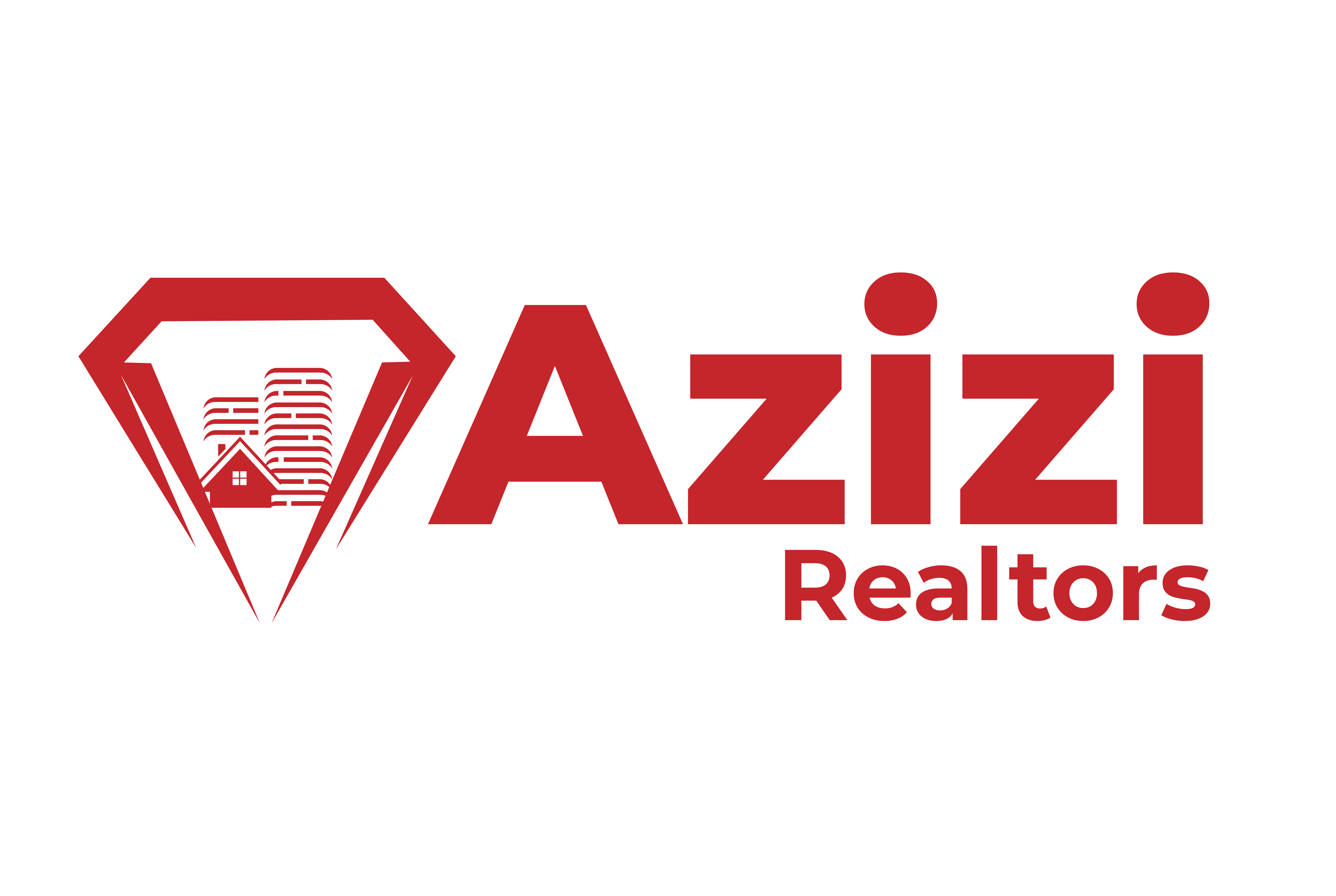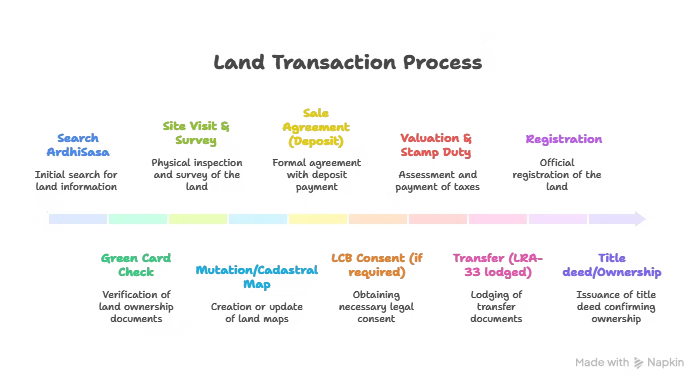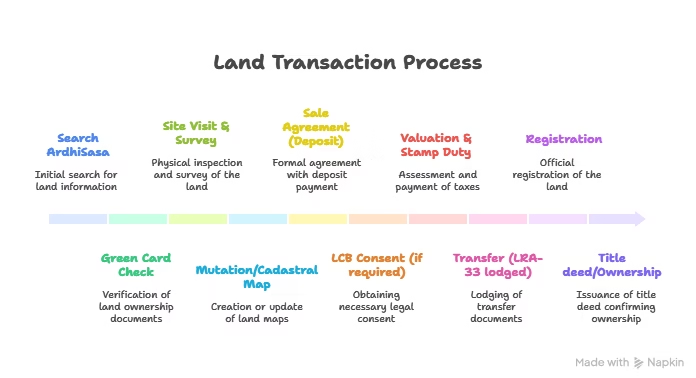Your Guide to Buying Land in Kenya
Why Land Buying in Kenya Feels Like a Maze
Buying land in Kenya is one of those things everyone dreams of, but very few navigate smoothly. One wrong move, and you’re in court for years or nursing losses you’ll never recover. The problem isn’t that land is “cursed” or that sellers are always crooks; it’s that buyers skip the boring but essential checks.
This guide strips away the fluff. Whether you’re eyeing a plot in Nairobi, a shamba in Kitengela, or a family inheritance back in the village, here’s the guide you should follow.
The Harsh Truth: Why People Lose Money in Land Deals
Here’s the reality: people lose money in land deals because they want shortcuts. They trust a relative, skip searches, or believe that a handshake is enough. Kenya’s land system is layered with history, bureaucracy, and sometimes fraud. If you don’t respect the process, you’ll end up with a worthless piece of paper instead of a secure investment.
Step 1: Before You Pay a Single Shilling, Due Diligence
Official Land Search (ArdhiSasa / eCitizen)
Think of the official search as your land’s “medical check-up.” It reveals the current registered owner, any mortgages, caveats, or disputes. If the name on the search doesn’t match the seller’s ID, walk away.
The Green Card Explained
The green card is the registry’s master record of that land. It shows all historic entries: who has owned it, loans placed on it, or transactions attempted. If the seller hesitates to show you this, take it as a red flag.
Physical Inspection and Site Visit
Always walk the land. Check if beacons are intact, whether access roads exist, and if neighbors acknowledge the seller’s ownership. Missing beacons? Get a licensed surveyor to verify.
Who Should Help: Advocates & Licensed Surveyors
Your lawyer and surveyor aren’t optional. They’re the difference between a legit title deed and tears. Don’t let a “cheap shortcut” cost you millions.
Step 2: Mapping, Survey & Mutation – When Buying Part of a Parcel
Role of a Licensed Surveyor
When you’re buying a portion of land, a surveyor confirms boundaries and prepares new maps.
Mutation Process Simplified
Mutation is the splitting of a big land parcel into smaller, legally recognized plots. Without it, you’re technically buying “air.”
Why You Shouldn’t Pay Before Mutation Is Done
If a seller says, “We’ll do mutation after payment,” stop right there. That’s like buying half a cake before it’s cut.
Step 3: The Sale Agreement – Your Lifeline
Key Elements of a Solid Sale Agreement
- Sale price and deposit clearly stated.
- Deposit held in advocate’s trust account.
- Who pays for survey, LCB, and registration.
- Default clauses protecting you if the seller misbehaves.
Market Practice: Deposits & Timelines
Usually, you pay 10% upfront, then the balance in 30–90 days after conditions are met.
Conditions Precedent to Protect Your Money
Include clauses like: seller must produce the green card, mutation must be registered, and LCB consent granted before full payment.
Step 4: Land Control Board (LCB) Consent
When LCB Consent Is Required
Any agricultural land or controlled transaction (sale, lease over 21 years, mortgage) needs LCB approval.
How the Application Works
Both buyer and seller attend a short county board meeting with their documents. The board gives written consent.
Common Lies About LCB Consent
If someone says, “We can skip LCB,” don’t believe it. Transactions without it are void.
Step 5: Valuation, Stamp Duty & Payment
Valuation Process & Why It Matters
The government valuers check the land’s market value for tax purposes.
Stamp Duty Rates in Kenya
Rates vary: 4% for urban property, 2% for rural. Always budget for this.
Safe Ways to Transfer Money
Always route payments through your lawyer’s account or escrow. Handing over cash directly is asking for heartbreak.
Step 6: Transfer & Registration – Becoming the Legal Owner
Lodging the Transfer on ArdhiSasa
Your lawyer uploads the transfer documents online, pays fees, and initiates registration.
The LRA-33 Form Explained
This is the official transfer form. Without it, nothing moves.
How to Confirm You’re the Legal Proprietor
Only when your name appears on the registry (not just on a printed title deed) are you safe.
Step 7: Timelines & Costs to Expect
Expect 30–90 days for most transfers, longer if subdivision is needed. Budget for:
- Official search: KES 500–1,000
- LCB fees: modest county charges
- Stamp duty: 2%–4% of land value
- Surveyor: depends on parcel size
- Advocate: negotiable fee
Step 8: Red Flags to Watch Out For
- Seller refuses an official search.
- Green card is “unavailable.”
- Beacons are missing with no explanation.
- Seller pushes cash payment outside advocate oversight.
- The title has active caveats or mortgages.
Final Checklist: Print and Use
- Official search done
- Green card inspected
- Site visit completed with the surveyor
- Mutation/subdivision confirmed
- Sale agreement signed & deposit in the advocate’s trust
- LCB consent obtained (if required)
- Valuation and stamp duty paid
- Transfer lodged on ArdhiSasa
- Registration is complete with proof
Tips for Diaspora Buyers; Avoiding Remote Fraud
- Use a trusted law firm, not relatives.
- Demand real-time updates on ArdhiSasa.
- Insist that payments go through escrow.
- Never buy land without physically inspecting it through a representative surveyor.
Buy Smart, Not Fast
Buying land in Kenya isn’t rocket science, but it does require patience, paperwork, and the right professionals. Skip one step, and you could lose your hard-earned money. Follow this guide, print the checklist, and insist on the process, no matter how much the seller pushes.
Ready to buy with confidence? Book a 30-minute consultation with the Azizi Realtors team.
Call/WhatsApp: 0703790095





